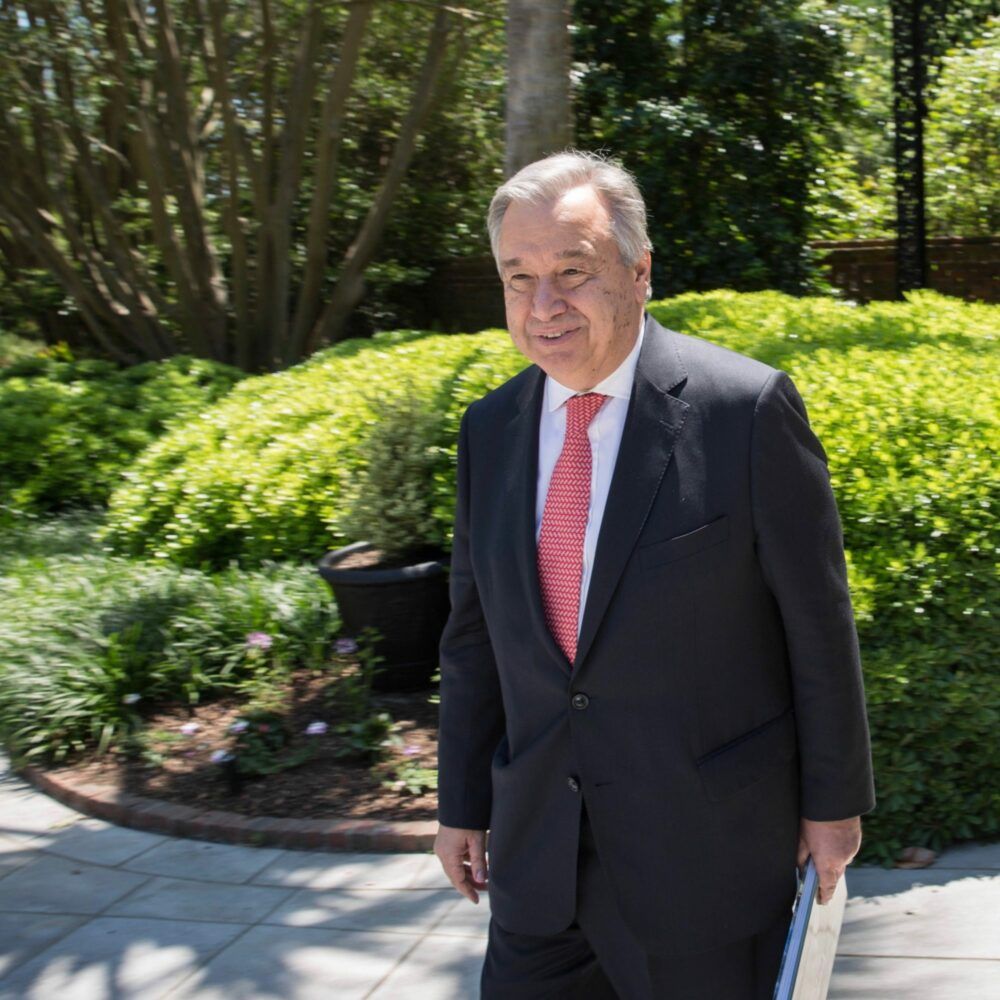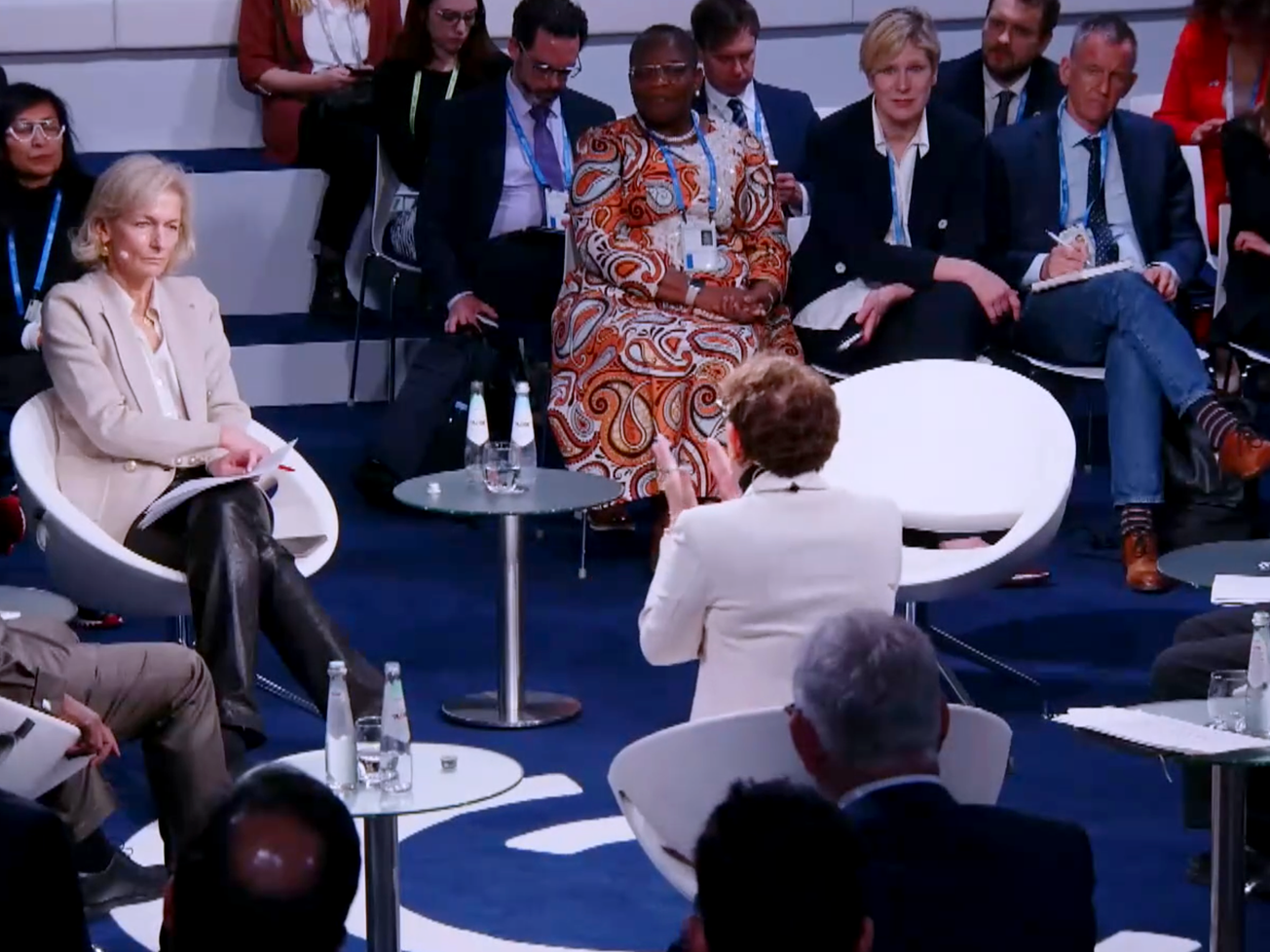UNITED NATIONS (AN) — U.N. Secretary-General António Guterres was unanimously re-elected to a second term on Friday, winning approval from the U.N. General Assembly to serve as head of the world body for the next five years and oversee efforts to fight climate change, end the COVID-19 pandemic and encourage peace around the globe.
The 193-nation assembly re-elected Guterres by acclamation, a procedure that does not involve a formal vote, after Estonia’s U.N. Ambassador Sven Jurgenson, who holds the U.N. Security Council's monthly revolving presidency, shared the council's recommendation to give Guterres a second term.
Guterres, who was immediately sworn in to another five-year term that will begin at the start of 2022, told diplomats he felt honored by this "solemn moment" in history.
"I find myself experiencing a whirlwind of emotions and thoughts," he said. "I am acutely aware of the immense responsibilities you are entrusting me [with] at such a critical moment in history — dare I say, at the cusp of a new era. We are truly at a crossroads, with consequential choices before us. Paradigms are shifting. Old orthodoxies are being flipped."
Guterres said the pandemic has "revealed our shared vulnerability, our interconnectedness and the absolute need for collective action. We feel a new momentum everywhere for an unequivocal commitment to come together to chart a course towards a better future. I pledge to you that I will do everything in my power during my second term in office to contribute to the positive, breakthrough scenario."
His re-election came 10 days after he locked up the race by winning the Security Council's unanimous support. The 15-nation council, the U.N.'s most powerful arm, approved a resolution by acclamation, along with a communiqué, to recommend giving Guterres a second term.
Maldives Foreign Minister Abdulla Shahid won election earlier to serve a one-year term as the next president of the General Assembly, the main deliberative chamber for all nation members, starting on September 14.
Guterres was the sole candidate for the job — in contrast to his frequent calls for more diversity, equity and inclusion in the world body's top ranks and despite the emergence of seven challengers, including several women, that were self-nominated but unable to formally compete because they lacked government backing. The assembly had made that an unofficial requirement of all candidates entering the race.
“Even though we had only one official candidate, the process of the selection has not changed since last time," said Jurgenson.
Asked about the uncontested race, Jurgenson acknowledged "there were other self-proclaimed candidates who were not official candidates, because according to the rules only states can nominate candidates. Fortunately — unfortunately — the beauty is in the eyes of the looker, as they say. This time, no other state presented a candidate."
He added that Guterres is a "bridge-builder" and experienced leader who has demonstrated he is "able to speak to everybody," and that "he has proven worthy of the post already with the five years that he has been in office."
I am deeply honoured and grateful for the trust placed in me to serve as the Secretary-General of the United Nations for a second term.
— António Guterres (@antonioguterres) June 18, 2021
Serving the @UN is an immense privilege and a most noble duty.
#EstoniaUNSC congratulates @antonioguterres on the #UNSC recommendation to be appointed @UN 🇺🇳 #SecretaryGeneral for a second term of office.
— Estonia in UN | #StandWithUkraine 🇺🇦 (@EstoniaUN) June 8, 2021
🇪🇪 PR Sven Jürgenson: #Estonia as Chair of the #UNSC for the month of June has had the honour to guide these discussions in the Council. https://t.co/I5WZjM7TaL pic.twitter.com/zh5DmERB6n
A 'presidency of hope'
Shahid will step to the forefront of the assembly, replacing Turkey's Volkan Bozkir, with an agenda largely based on vows to lead a fight for more equitable global access to coronavirus vaccines and for stronger efforts to combat global warming.
He won election over Zalmai Rassoul, a former Afghan foreign minister, in a 143-48 secret ballot vote on June 7. Two nations did not take part.
The top diplomat from the Maldives has long represented one of the most climate-vulnerable, low-lying nations in the Indian Ocean that are prominent symbols of the urgency of fulfilling the 2015 Paris Agreement on global warming.
Shadid said he had both “an undying belief in multilateralism with an ardent desire to serve the international community," and he wants his tenure to be a "presidency of hope” that tackles inequalities and pushes for greener economies.
“This is a crucial time for the United Nations and for the world,” he said. “There is very little time to spare.”
Guterres congratulated Shahid on his election, and described the assembly as "the foundation of all our work at the United Nations, and essential to our effectiveness as an organization" with a mission made all the more urgent by the pandemic, which has infected 178 million people and killed more than 3.8 million worldwide.
"We are a world in mourning for the millions of people we have lost to the COVID-19 pandemic. The crisis has dealt a body blow to communities, societies and economies," said Guterres. "Until everyone, everywhere has access to vaccines, it continues to pose an enormous threat."
This story has been updated from a previous version published on June 8.







